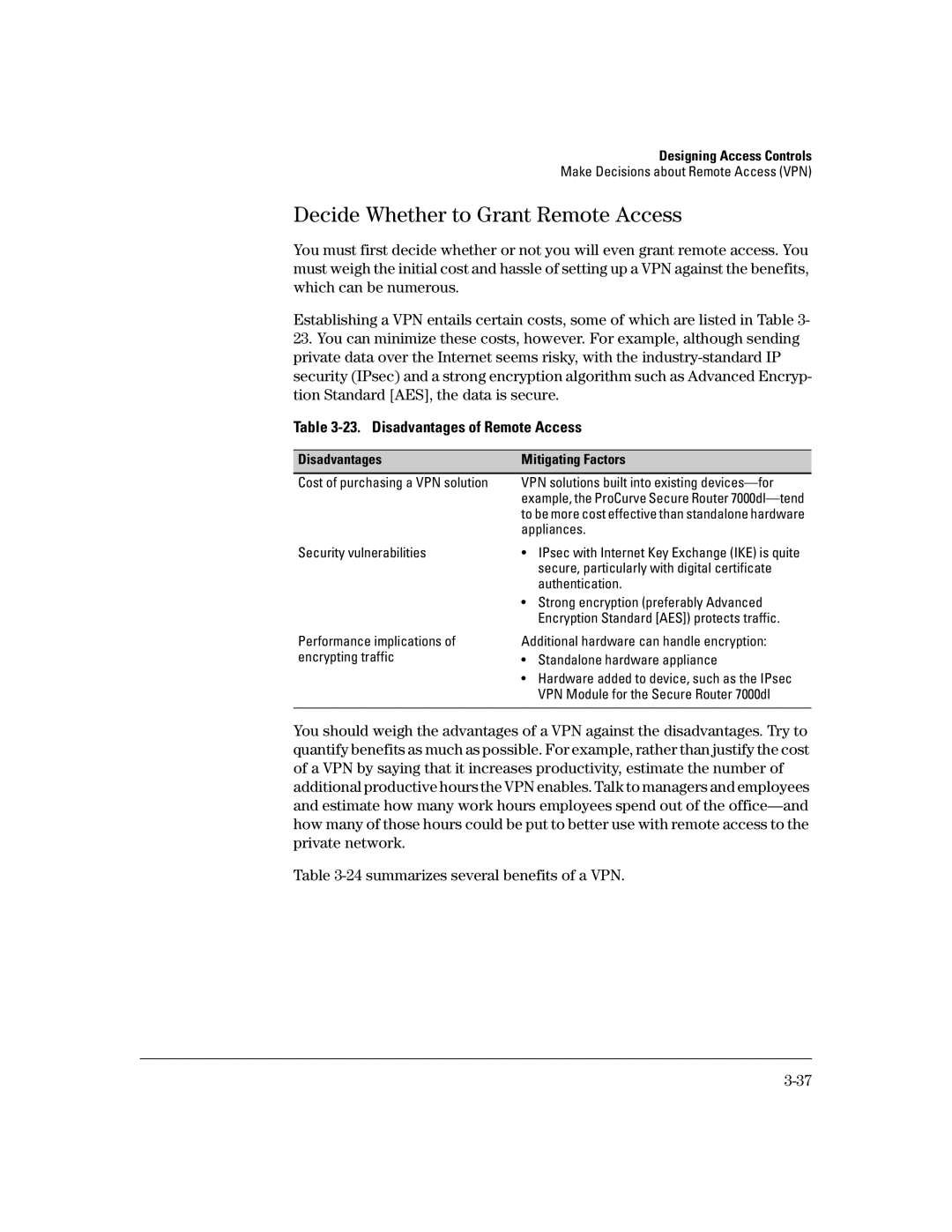
Designing Access Controls
Make Decisions about Remote Access (VPN)
Decide Whether to Grant Remote Access
You must first decide whether or not you will even grant remote access. You must weigh the initial cost and hassle of setting up a VPN against the benefits, which can be numerous.
Establishing a VPN entails certain costs, some of which are listed in Table 3-
23.You can minimize these costs, however. For example, although sending private data over the Internet seems risky, with the
Table 3-23. Disadvantages of Remote Access
Disadvantages | Mitigating Factors |
Cost of purchasing a VPN solution | VPN solutions built into existing |
| example, the ProCurve Secure Router |
| to be more cost effective than standalone hardware |
| appliances. |
Security vulnerabilities
Performance implications of encrypting traffic
•IPsec with Internet Key Exchange (IKE) is quite secure, particularly with digital certificate authentication.
•Strong encryption (preferably Advanced Encryption Standard [AES]) protects traffic.
Additional hardware can handle encryption:
•Standalone hardware appliance
•Hardware added to device, such as the IPsec VPN Module for the Secure Router 7000dl
You should weigh the advantages of a VPN against the disadvantages. Try to quantify benefits as much as possible. For example, rather than justify the cost of a VPN by saying that it increases productivity, estimate the number of additional productive hours the VPN enables. Talk to managers and employees and estimate how many work hours employees spend out of the
Table
